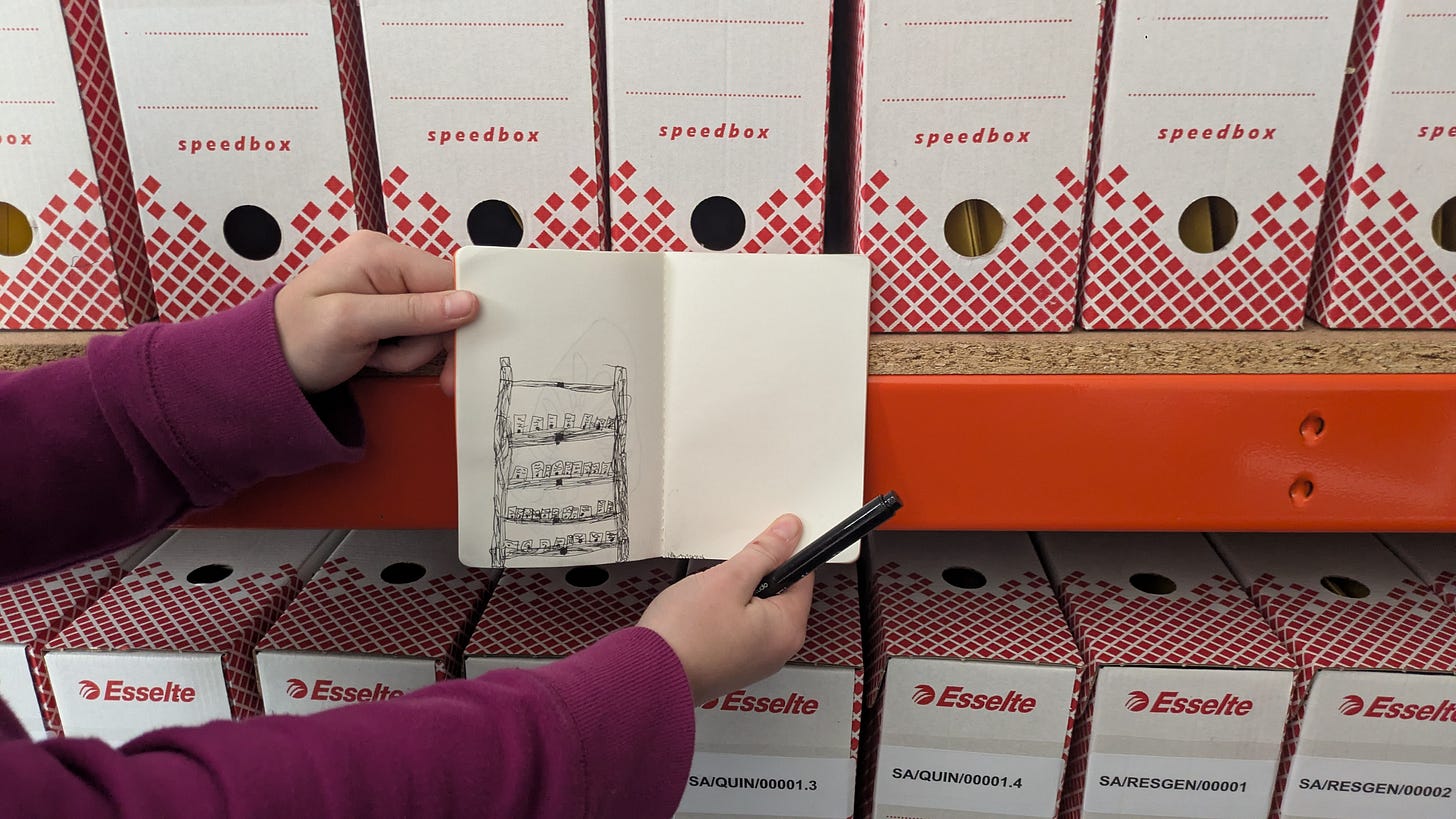Reclaiming the Archive: Power, Memory & Community Voice
Thomas Goddard | Democratising Archives
The archive has long been seen as a place of silence. A quiet, dust-filled room in a distant institution—closed to most, open to few. A vault of the past, managed by gatekeepers with keys forged in power and privilege. But what if we began to see the archive differently? Not as static, neutral or complete—but as something alive, relational, and still being written.
Across communities, the idea of what an archive is is shifting. People are beginning to reclaim the archive—not just as a repository, but as a space for resistance, story-sharing, care, and agency.
Whose Stories Get Kept?
History isn’t just what happened. It’s what got written down. It's whose voice was heard, whose documents were saved, whose stories were deemed worthy. Too often, the archive has mirrored the systems of power that shaped it—preserving the dominant narrative and quietly discarding everything else.
That’s why community archiving is so vital. Marginalised communities—Indigenous peoples, migrants, working-class voices, LGBTQ+ histories—have too often been left out, written over, or deemed “not official enough.” Reclaiming the archive means asserting that these stories do matter, and that they deserve to take up space—not only in the present, but in the memory of the future.
Archives as Acts of Justice
Archives aren’t neutral. They’re built on choices—what to keep, what to ignore, who gets to decide. So maybe it’s time to stop thinking of them as shelves to fill and more as spaces to shape.
What if archives were led by moral obligation rather than institutional protocol? What if archiving was understood as an act of care, of justice, of solidarity? When communities are at the heart of the process—when archivists become collaborators rather than gatekeepers—archives become something new: a participatory space for making meaning together.
Ownership, Access & the Digital Divide
There’s a hopeful promise in digital archives: the idea that everything can be open, always available, universally accessible. But digitisation isn’t a panacea. It can still replicate inequality—if access requires devices, literacy, or cultural fluency. Passive consumption of scanned images isn’t the same as true participation.
That’s why community-driven approaches matter. Community archives—created by people, for people—let communities take ownership of their own histories. When people upload their own oral histories, create their own online exhibitions, or decide what’s preserved and how—it shifts power. It transforms access into agency.
The Archive as a Living Space
We need to think of archives less as storage and more as story. Not just a place to find the past, but a place to make meaning. They should be alive with conversation, contradiction, re-interpretation. They should be messy, complex, human.
Reclaiming the archive is about much more than preservation. It’s about celebration. It’s about intergenerational learning, and creating spaces where elders, young people, artists, historians, and neighbours come together to remember, record, and reimagine.
When the archive becomes a shared space, it becomes a place where culture lives—not just survives.
Join the Conversation: Democratising Archives
We’re exploring these questions and more as part of Democratising Archives—a community-centred project happening right here in Plymouth.
Join me, Beth Emily Richards and Take A Part’s very own Gemma Smith for an in-conversation event* exploring archives, community memory, and collective voice. We'll talk about awareness, involvement, representation, and the ethics of collecting. We'll ask: What does it mean to truly democratise the archive? What stories are still missing—and how can we work together to bring them in?
Let’s reshape the archive together—so it reflects all of us.
This post is part of a programme with the Learning Academies Trust, Take A Part and Efford, Whitleigh and St Judes exploring the creation of a community archive which has been supported by the Heritage Lottery Fund.
* This event took place in April 2025 following the release of this article.




